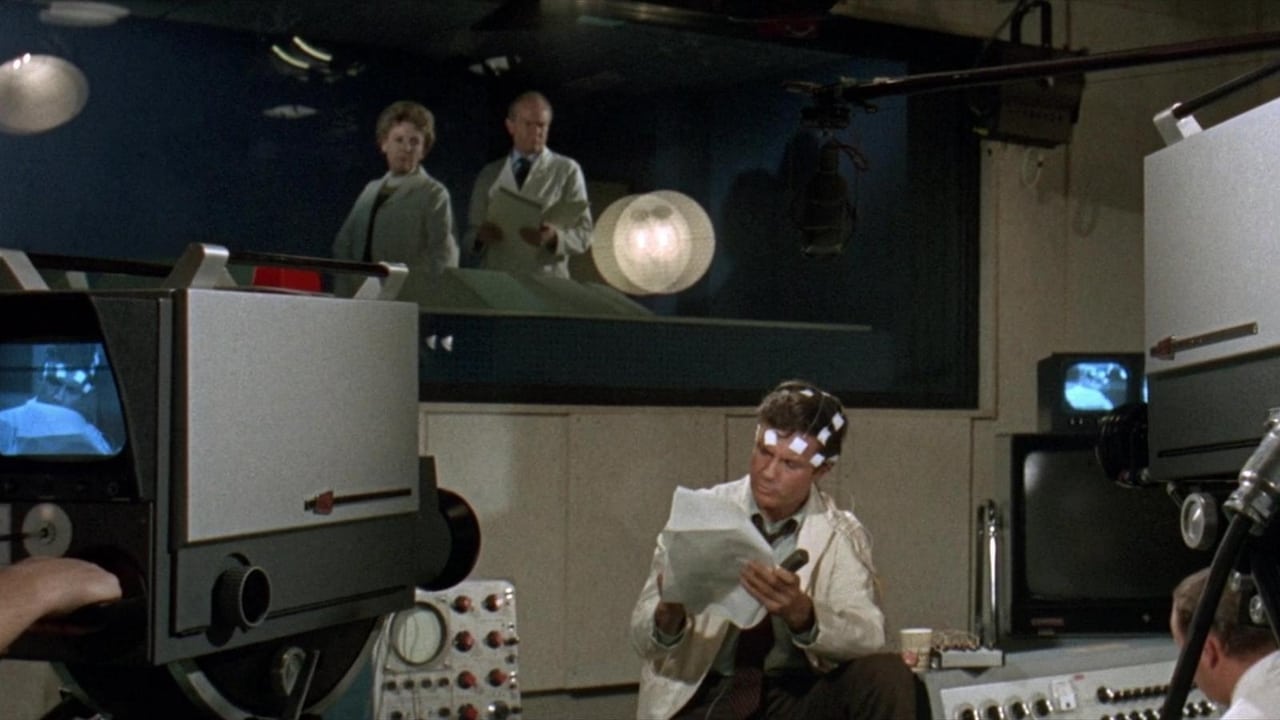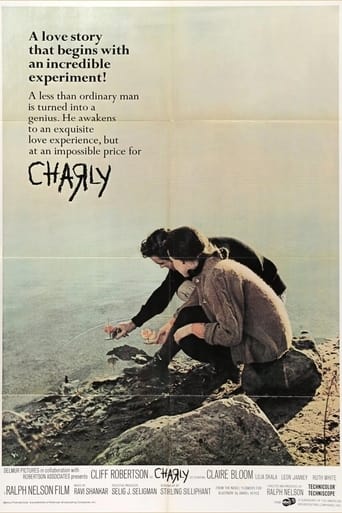

You know, I still haven't quite made up my mind which character I thought Cliff Robertson played the worst - The mentally defective, Charly Gordon? - or - The brilliant genius, Charly Gordon? If I was actually forced to make a decision about either one of Robertson's truly unconvincing portrayals, I guess I would have to go with his impersonation of the mentally defective, Charly Gordon. I mean, Robertson was so "aw-shucks!" bad that it was downright laughable at times.And, with that in mind, I honestly cannot believe that Robertson actually won an Oscar for his performance, portraying the 2 Charly Gordons. And, besides that, at 45, I thought he was way too old for his character.This 1968 picture (no matter how well-meaning its story was meant to be) not only left me quite dissatisfied with its half-baked theories regarding mental retardation, but, below is a list of 3 of my major beefs against it.(1) I think this film deliberately exploited retardation simply for the sake of a really cornball romantic angle.(2) I thought that it was pretty damn-low that therapist, Alice Kinnian, actually had sex with her patient (Charly Gordon), regardless of his progressing intellectual level.(3) When Charly finally transformed into "Mr. Genius", his character was so unable to see beyond his own sneering cynicism towards his fellow man that it left him incapable of offering any sound solutions to many of man's social/global blunders.Anyway - In conclusion - This was one film that I was hoping would be more than just some entertainment "fluff". But, that's all that it was. 'Cause it was certainly a far cry from being a worthwhile exercise into intellectualism, as it might have been.
... View MoreBefore watching Charly I had been told to avoid watching this film having just read the book. Of course I didn't do myself justice and decided to watch the film anyway. The film simply rushes through the whole storyline trying to fit too many themes in a minimum amount of opportunities in a mere hour and forty minutes.As stated before the length of the film was much too short in order to get across the message in an efficient way let alone in a strong manner. This had a large indirect or maybe direct effect on the performance of that of Cliff Robertson who plays Charly. The transformation of his happens at lightning quick speed which undermines the book in not displaying the long and grueling process Charly had to face in which he was constantly being treated like a lab experiment. Also the way he deals with his feeling on loneliness and lack or respect is in no way the same as he did in the book which was much more understandable and seemingly much more realistic in the way Charly would have reacted. Instead in the movie he drives off and becomes wild and crazy without a second thought. A rushed script here leads easily to a rushed movie with glaring problems, even more so then the leading character.Ralph Nelson, the director of this film, took the wrong approach here trying to have Charly change so drastically at such a fast pace. The transformation in itself is shocking enough. There is no need to further try and make the lead character undergo this rapid change because it takes away from the substance of the film and ultimately the rest of the film with it. The entire film rests on this one leading character and the director certainly displayed that challenge here, unfortunately it was not displayed in the way that it should have been. I would not recommend this film especially if you read the book because it is filled with just to many contradictions throughout and faces its own themes in a overly simplistic way and method. The film fails miserably in trying to describe such a complex problem effectively and certainly doesn't give any answers in a precise or convincing manner. Sadly this film becomes a parody of itself.
... View MorePerhaps it's wishful thinking, but there are many people who wish they could learn as much as anyone else. It's sad and downright tragic when you realize you're incapable of advancing common knowledge or higher education. Some are gifted, some are slow and some are just plain retarded and will never comprehend what is being taught. But what if there was a way? What if science could remedy what nature restricted in the human brain? That is the premise for the movie " Charly. " It tells the story of an adult retarded man named Charley Gordon (Cliff Robertson, 1968 Academy Award winner) who is mentally incapable of surmounting even simple challenges like spelling the word 'School.' Inside him is a deep desire to learn, but is mentally unable. That all changes when two brilliant scientists conceive of a medical procedure which can transform, first a mouse, then a human being into not only a educated individual, but a mental genius. Based on the novel "Flowers for Algernon" Cliff Robertson gives a brilliant and visually haunting performance of the retarded man who is suddenly transformed into a genius. Not only does he 'see' better than most, he's able to visualize what escapes even the most sophisticated in society. What he also sadly realizes is that 'increased intelligence equals loss of friends.' Beginning with the ability to learn and learn quickly, his advanced knowledge also unfortunately reveals his own future, a future he confronts the two doctors with. This is a must picture for anyone who'd like to see the man beat the mouse and yet have sympathy for both. A superb cast featuring Claire Bloom, Lilia Skala, Leon Janney and Dick Van Patten as Bert makes for a believable Classic movie. ****
... View MoreI read Daniel Keyes' book, *Flowers for Algernon,* when aged nine and few books before or since have affected me as much. Surgical experimentation is frequently controversial and can be devastating in its consequences. Beyond the ethical issues are Algernon and Charly, one a mouse, the other, human, who are affected by a particular experiment -- Charly, especially, in a multitude of ways.Robertson does extremely well in a particularly complex role. Throughout we see his humanity. His "transformation" is believable, and by the actor's skill, Charly is portrayed as a sympathetic Everyman in an extraordinary situation.I give this film the highest recommendation.
... View More